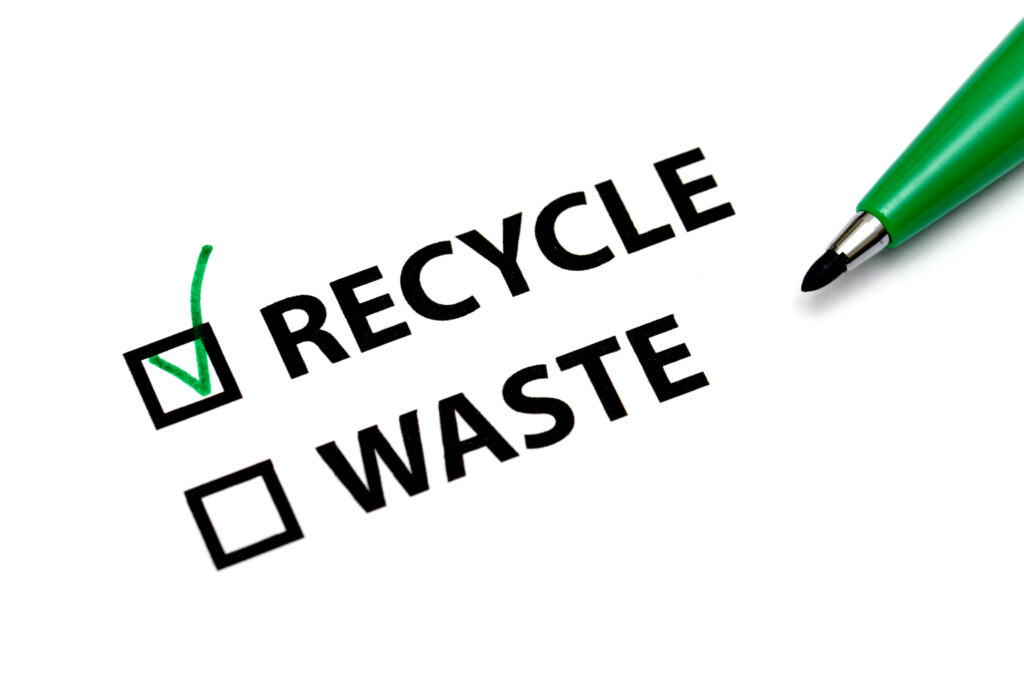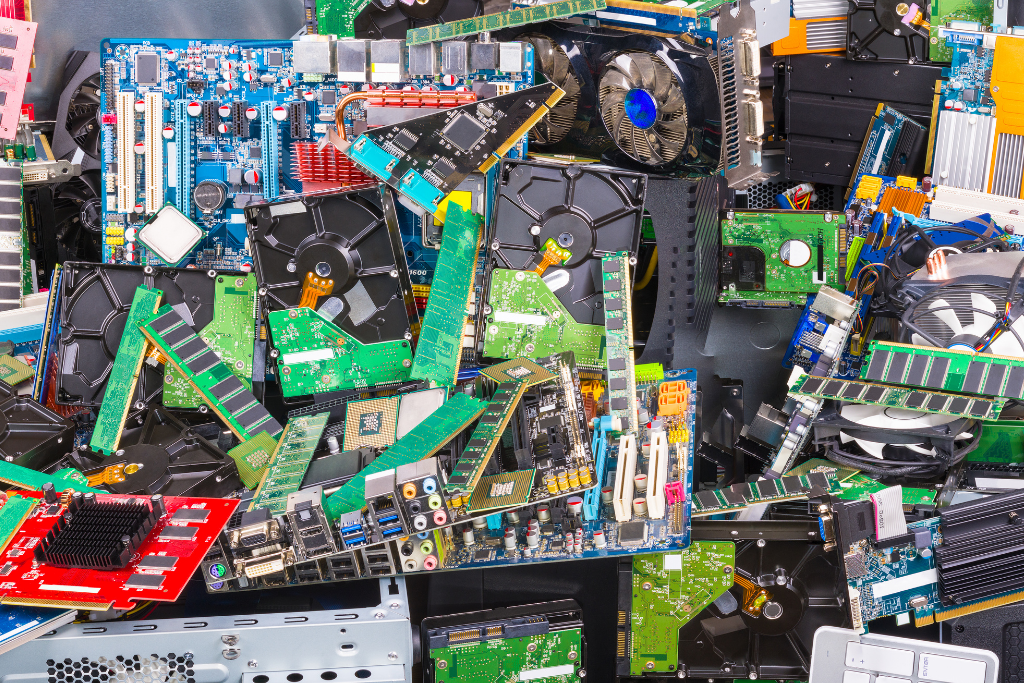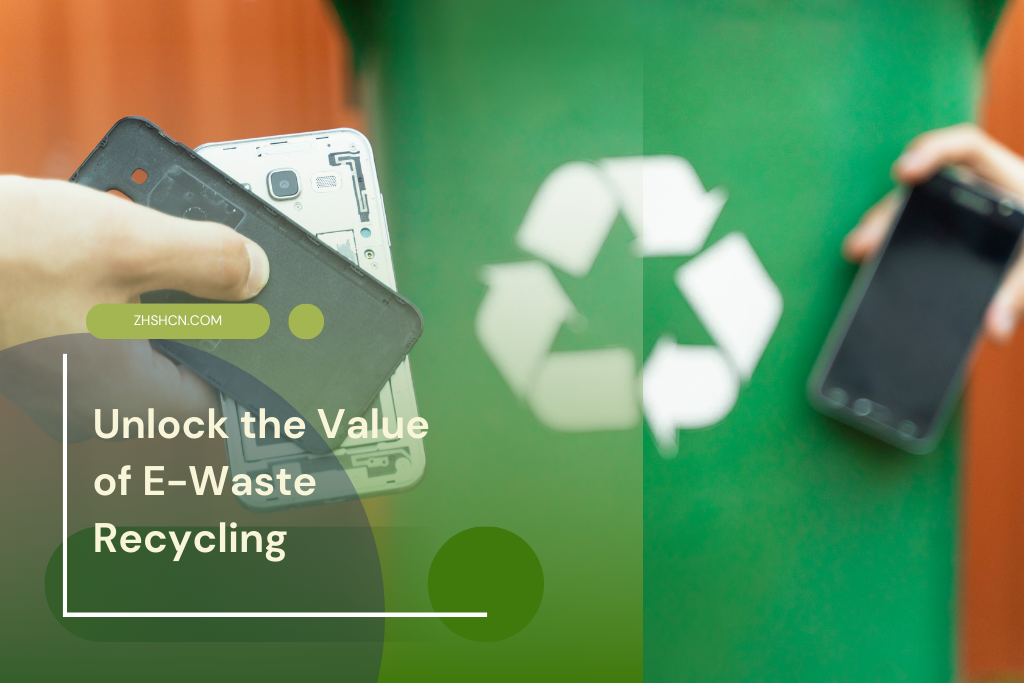Electronics are an integral part of our daily lives, and with technological advancements, devices become obsolete quicker than ever. This raises an inevitable question: “Unlock the Value of E-Waste Recycling.” As we delve into this topic, we’ll explore the value of electronics recycling from various perspectives, including its environmental, economic, and security implications.
Key Takeaways:
- Electronics recycling offers significant environmental benefits, such as reducing e-waste and conserving resources.
- It results in energy savings and can be economically beneficial.
- Recycling electronics helps in data security by ensuring proper data disposal.
- Adherence to legal compliance can be ensured through responsible electronics recycling.
- Engaging in responsible electronics recycling contributes to a sustainable future.

The Value Proposition of Electronics/E-Waste Recycling
Value of E-Waste Recycling: Environmental Benefits
One of the most compelling reasons to recycle electronics is the environmental impact. The following are some of the environmental benefits associated with electronics recycling:
Reduction of E-Waste
Electronic waste is a growing problem worldwide, and electronics recycling plays a crucial role in mitigating its impact. Electronic devices, such as computers, phones, and TVs, often contain hazardous materials that can be harmful to both the environment and human health. These materials include lead, mercury, cadmium, and other toxic substances that can contaminate soil and water sources if not disposed of properly.
By recycling electronics, hazardous materials can be safely extracted and disposed of, reducing the risk of environmental pollution and protecting human health. Moreover, electronics recycling helps to conserve natural resources and reduces the energy consumption and greenhouse gas emissions associated with the production of new electronic devices.
Conservation of Resources
Electronics contain valuable materials like gold, silver, and copper. Recycling can recover these precious metals, reducing the need for fresh mining, which can have severe environmental consequences.
Value of E-Waste Recycling: Energy Savings
Manufacturing Savings
Recycling electronics is more energy-efficient than creating new ones from raw materials. Hence, recycling contributes to decreased energy consumption and a lesser carbon footprint.
Economic Benefits
Electronics recycling not only serves the environment but also has economic advantages:
Job Creation
The electronics recycling industry can create numerous jobs ranging from collection and sorting to advanced e-waste processing.
Cost Savings
Municipalities and businesses can save significantly on disposal fees by opting to recycle electronics instead of dispatching them to landfills.
Value of E-Waste Recycling: Data Security
Data Protection
Old devices often contain sensitive data. Responsible recycling ensures this data is wiped securely, protecting against potential data breaches.

Legal Compliance
Many regions mandate responsible electronic disposal through laws and regulations. Recycling ensures that individuals and businesses remain compliant, avoiding hefty penalties.
Resource Availability for the Future
Recycling ensures that essential materials remain available for future electronic device production, fostering sustainability.
Value of E-Waste Recycling: The Case for Electronics Recycling
According to a source, only about 12.5% of electronic waste is recycled annually. With an average American discarding approximately 44 pounds of electronic waste yearly, there’s an urgent need for more responsible recycling. Furthermore, dumped electronics release toxic substances like mercury and lithium into the environment.
Additionally, discarded electronics, especially computers, pose significant data theft risks. A thrown-away computer might seem worthless, but its data, containing personal information and passwords, can be invaluable to a potential data thief.
Value of E-Waste Recycling: Frequently Asked Questions
How can I identify precious metals in electronics?
Electronics often contain metals such as gold, silver, and copper. These metals can be found in connectors, switches, and printed circuit boards. Specialized tools and knowledge are required to extract and identify them.
Is e-waste recycling profitable?
Yes, e-waste recycling can be profitable, especially with the recovery of precious metals. However, profitability depends on the scale of operations and efficiency in the recovery process.
Conclusion
The question is not whether electronics recycling is worth it but how to make it a norm. With the myriad of benefits, from environmental conservation to data protection, the case for electronics recycling is stronger than ever. As technology evolves, let’s ensure our planet doesn’t pay the price for our progress.
